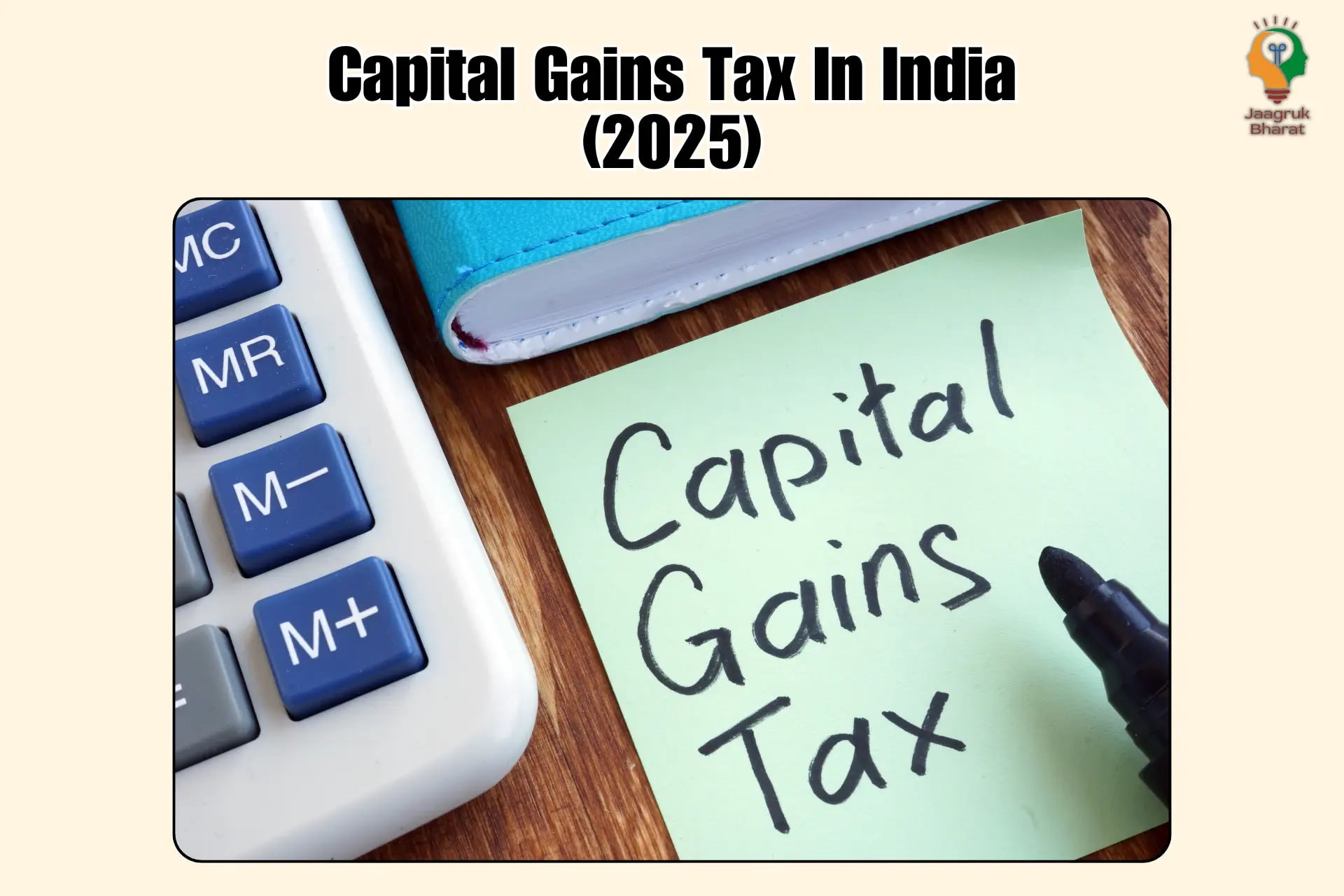What Is Capital Gains Income? Tax Rules & Examples
Updated: 23-09-2025 at 8:30 AM
1k


Most people and organisations selling or transferring assets in India are subject to capital gains tax. Because the economy and rules can change, getting to know capital gains taxation is necessary for good money management. This article explains capital gains tax laws for India in the fiscal year 2025-26, considering recent modifications and important strategies.
What Is Capital Gains?
When you sell certain investments such as property, stocks, bonds and other assets, these sales are called capital gains. The returns are split into three categories based on when you buy and sell the asset.
-
Short-Term Capital Gains (STCG): STCG is used when assets are sold less than 36 months (in some instances, 12 months for securities) after buying them.
-
Long-Term Capital Gains (LTCG): For LTCG, assets are kept for more than 36 months (12 months for specific securities) and then sold.
Also Read: How To Determine Capital Gains From Selling An Under-Construction Property?
Tax Rates For Capital Gains (FY 2025-26)
Understanding how capital gains are taxed helps you plan your investments better and avoid unexpected tax liabilities. Let's break down the applicable rates for both short-term and long-term capital gains in the current financial year.
STCG: Short Term Capital Gains
-
Equity Shares and Equity-Oriented Mutual Funds: When you sell Equity Shares or Equity-Oriented Mutual Funds, you pay 20% capital tax plus cess and surcharge, under the rules of Section 111A.
-
Other Assets: Taxes are applied using the individual’s income tax slabs.
LTCG: Long Term Capital Gains
-
Equity Shares and Equity-Oriented Mutual Funds: For gains beyond ₹1.25 lakh from Equity Shares and Equity-Oriented Mutual Funds, a 12.5% tax, plus surcharge and cess, is applied.
-
Other Assets: If a taxpayer uses indexation, tax will be 20%. If not, it will be 12.5% instead.
Recent Legislative Changes
Let’s break down the latest legislative updates introduced in the Income Tax Bill, 2025, and how they affect capital gains reporting and relief options.
-
One-Time Set-Off of Long-Term Capital Losses: Temporarily, taxpayers in the current fiscal year face the possibility of offsetting their 2026-27 short-term capital gains with long-term capital losses from March 31, 2018, onwards. This rule helps you postpone and reduce your liability for capital gains tax.
-
Revised Reporting Requirements: CBDT now requires taxpayers to include capital gains on ITR forms for the season 2025-26 and to break these down by asset, along with the time they held the assets.
Also Read: 6 Ways In Which Senior Citizens Can Reduce Their Capital Gains During ITR Filing
Rules For Getting Tax Exemptions
Several sections in the Income Tax Act give capital gains exemptions only if a few conditions are met.
-
Section 54: If you sell your house and use the gains for another house in a specified time frame, you do not have to pay tax on your LTCG.
-
Section 54F: According to Section 54F, you do not have to pay LTCG tax on assets apart from residential property if you spend the entire gain on purchasing a house.
-
Section 54EC: You can be exempt from tax on the sale of land or building if you invest your gains in NHAI or REC bonds within six months. The highest amount you can invest is Rs. 50 lakh.
-
Section 54GB: If the proceeds from selling a residential property are used to buy equity of an eligible startup within one year, LTCG will not be charged.
-
Utilise Exemptions: If you sell your house and use the gains for another house in a specified time frame, you do not have to pay tax on your LTCG.
-
Indexation Benefits: According to Section 54F, you do not have to pay LTCG tax on assets apart from residential property if you spend the entire gain on purchasing a house.
-
Set-Off and Carry Forward Losses: You can be exempt from tax on the sale of land or building if you invest your gains in NHAI or REC bonds within six months. The highest amount you can invest is Rs. 50 lakh.
-
Diversify Investments: If the proceeds from selling a residential property are used to buy equity of an eligible startup within one year, LTCG will not be charged.
Conclusion
Dealing with capital gains taxation includes knowing about the laws, available exceptions and smart ways to plan for them. Knowing about new laws and using the appropriate provisions can result in major tax savings and a healthier financial situation.
Get the latest updates on government schemes and policies with Jaagruk Bharat. Join India's biggest Jaagruk Bharat community. Share your thoughts, questions, and favourite topics with us.
0
0
1k
0
0
1k Views
0
No comments available





Our Company
Home
About
T&C
Privacy Policy
Eula
Disclaimer Policy
Code of Ethics
Contact Us
Cancellation & Refund Policy
Categories
Women
Insurance
Finance
Tax
Travel
Transport & Infrastructure
Food
Entertainment
Communication
Government ID Cards
E-commerce
Traffic guidelines
Miscellaneous
Housing and Sanitation
Sports
Startup
Environment and Safety
Education
Agriculture
Social cause
Employment
Disclaimer: Jaagruk Bharat is a private organization offering support for documentation and government scheme access. We are not affiliated with any government body. Official services are available on respective government portals. Our goal is to make processes easier and more accessible for citizens.
All Copyrights are reserved by Jaagruk Bharat